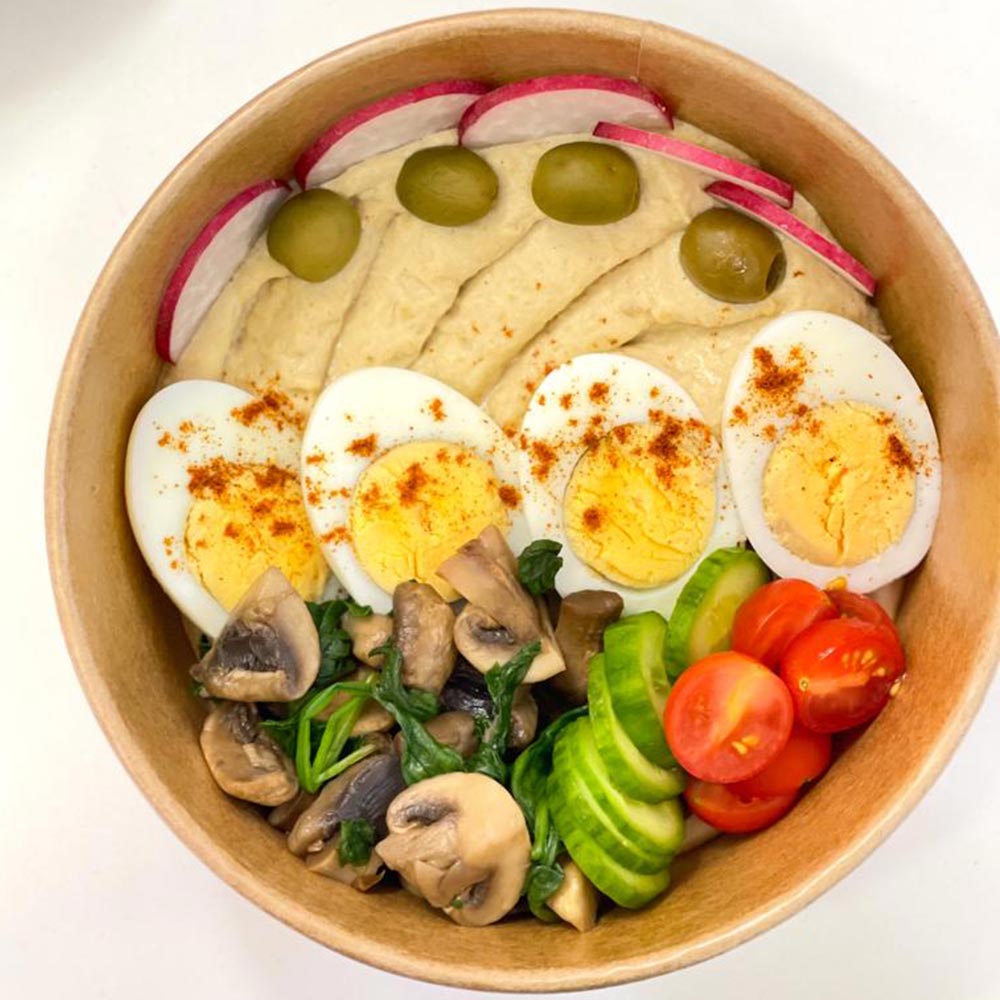When it comes to muscle growth, the role of carbohydrates is
often overlooked in favor of protein. However, the timing and type of
carbohydrates consumed can significantly impact your ability to build and
sustain muscle. Crafting an effective muscle gain meal plan involves
understanding the science behind carbohydrate timing and its effects on muscle
growth, energy levels, and recovery. In this article, we'll delve into the
latest research on carbohydrate timing, explore the best sources of carbs for
muscle gain, and provide practical tips for integrating these strategies into
your diet.
Understanding Carbohydrates and Their Role in Muscle Growth
What Are Carbohydrates?
Carbohydrates are one of the three macronutrients, alongside
protein and fat that provide energy to the body. They are broken down into
glucose, which fuels bodily functions and physical activities. Carbohydrates
can be classified into three main types:
1. Simple Carbohydrates: Found in fruits, milk, and sugary
foods, these are quickly absorbed by the body.
2. Complex Carbohydrates: Found in whole grains, vegetables,
and legumes, these provide a steady release of energy.
3. Fibrous Carbohydrates: Found in vegetables and whole grains,
these aid in digestion and provide minimal energy.
Importance of Carbohydrates for Athletes and Bodybuilders
Carbohydrates are crucial for:
1. Energy Production: Carbs are the primary source of energy
for high-intensity workouts.
2. Glycogen Storage: Carbohydrates replenish glycogen stores in
muscles, which are depleted during exercise.
3. Muscle Recovery: Adequate carb intake aids in recovery and
reduces muscle soreness.
4. Protein Sparing: Carbs prevent the body from using protein
as an energy source, allowing protein to be used for muscle repair and growth.
The Science of Carbohydrate Timing
Pre-Workout Carbohydrate Intake
Benefits
Consuming carbohydrates before a workout can:
1. Enhance Performance: Provides immediate energy for
high-intensity exercises.
2. Delay Fatigue: Maintains blood glucose levels, delaying the
onset of fatigue.
3. Improve Focus: Fuels the brain, improving mental focus and
concentration.
Recommended Sources
Opt for easily digestible carbs like:
- Bananas
- Oats
- Whole grain toast
- Fruit smoothies
Post-Workout Carbohydrate Intake
Benefits
Consuming carbohydrates after a workout can:
1. Replenish Glycogen Stores: Restores energy levels, preparing
muscles for the next workout.
2. Enhance Protein Synthesis: Increases insulin levels,
promoting amino acid uptake and muscle protein synthesis.
3. Speed Up Recovery: Reduces muscle soreness and accelerates
recovery.
Recommended Sources
Choose high-glycemic index carbs for quick absorption, such
as:
- White rice
- Potatoes
- Pasta
- Fruit juices
Carbohydrate Timing Throughout the Day
Morning
Starting the day with carbohydrates can:
- Boost Metabolism: Jumpstarts metabolism, providing energy
for the day.
- Enhance Cognitive Function: Fuels the brain, improving focus
and productivity.
Midday
Consuming carbs during lunch can:
- Maintain Energy Levels: Prevents midday slumps and sustains
energy levels.
- Support Afternoon Workouts: Provides fuel for late afternoon
or evening workouts.
Evening
Including carbs in your dinner can:
- Aid in Recovery: Replenishes glycogen stores overnight.
- Promote Better Sleep: Carbs can enhance the production of
serotonin, promoting better sleep.
Best Sources of Carbohydrates for Muscle Gain
Whole Grains
- Examples: Brown rice, quinoa, whole wheat bread.
- Benefits: Provide sustained energy, fiber, and essential
nutrients.
Fruits
- Examples: Bananas, berries, apples.
- Benefits: High in vitamins, minerals, and quick-digesting
carbs.
Vegetables
- Examples: Sweet potatoes, carrots, beets.
- Benefits: Rich in fiber, vitamins, and antioxidants.
Legumes
- Examples: Lentils, chickpeas, black beans.
- Benefits: Provide protein, fiber, and slow-digesting carbs.
Dairy
- Examples: Milk, yogurt, cottage cheese.
- Benefits: Offer a combination of protein and carbs,
supporting muscle repair and growth.
Integrating Carbohydrate Timing into Your Muscle Gain Meal Plan
Sample Muscle Gain Meal Plan
Breakfast
- Oatmeal with Berries: Rolled oats topped with mixed berries
and a drizzle of honey.
- Fruit Smoothie: Blend banana, spinach, Greek yogurt, and
almond milk.
Mid-Morning Snack
- Whole Grain Toast with Peanut Butter: Whole grain toast
spread with natural peanut butter.
- Fruit: An apple or a handful of grapes.
Lunch
- Chicken and Quinoa Salad: Grilled chicken breast served with
quinoa, mixed greens, and a light vinaigrette.
- Sweet Potato: Baked sweet potato with a sprinkle of
cinnamon.
Afternoon Snack
- Greek Yogurt with Honey: Greek yogurt drizzled with honey
and topped with granola.
- Banana: A ripe banana for quick energy.
Pre-Workout
- Fruit Smoothie: Blend a banana, mixed berries, and a scoop
of protein powder with water or milk.
Post-Workout
- White Rice with Chicken: Steamed white rice with grilled
chicken and a side of steamed broccoli.
- Fruit Juice: A glass of orange juice or another
high-glycemic fruit juice.
Dinner
- Pasta with Lean Meat: Whole wheat pasta topped with lean
ground turkey and marinara sauce.
- Mixed Vegetables: A side of steamed or roasted mixed
vegetables.
Evening Snack
- Cottage Cheese with Pineapple: Cottage cheese mixed with
pineapple chunks.
- Whole Grain Crackers: A few whole grain crackers for a light
snack.
Real-World Application: Case Studies
Case Study 1: Competitive Bodybuilder's Carbohydrate Strategy
A competitive bodybuilder aiming to maximize muscle gain
implemented a strategic carbohydrate timing plan:
- Pre-Workout: Banana and a scoop of whey protein.
- Post-Workout: White rice with grilled chicken and a glass of
fruit juice.
- Throughout the Day: Whole grains, fruits, and vegetables at
regular intervals.
- Results: The bodybuilder experienced enhanced muscle growth,
improved performance, and quicker recovery times.
Case Study 2: Endurance Athlete's Nutrition Plan
An endurance athlete looking to maintain muscle mass while
improving endurance followed a structured carbohydrate plan:
- Breakfast: Oatmeal with berries and a fruit smoothie.
- Pre-Workout: Greek yogurt with honey and a banana.
- Post-Workout: Pasta with lean meat and mixed vegetables.
- Results: The athlete maintained muscle mass, improved
stamina, and experienced better overall performance.
Overcoming Challenges
Dietary Restrictions
For those with dietary restrictions, consider the following:
- Gluten-Free Options: Quinoa, brown rice, and gluten-free
oats.
- Lactose Intolerance: Plant-based dairy alternatives like
almond milk and coconut yogurt.
Digestive Issues
To mitigate digestive discomfort:
- Gradual Increase: Gradually increase carb intake to allow
the digestive system to adapt.
- Hydration: Drink plenty of water to aid digestion.
- Fiber Balance: Ensure a balance of fiber-rich foods to
support digestive health.
Cost
To manage costs:
- Bulk Buying: Purchase carb sources in bulk to save money.
- Local Produce: Utilize local fruits, vegetables, and grains
available.
Conclusion
Carbohydrate timing is a crucial aspect of optimizing muscle
growth and overall performance. By understanding the science behind
carbohydrate timing, incorporating the best sources of carbs into your diet,
and following a strategic meal plan, you can maximize your muscle gain efforts.
Whether you're an athlete, bodybuilder, or fitness enthusiast in the UAE,
integrating these principles into your muscle gain meal plan will help you
achieve your fitness goals. Start today, and transform your muscle gain journey
with the power of precise carbohydrate timing. Embrace the benefits, and watch
your muscles grow stronger and more defined.






























